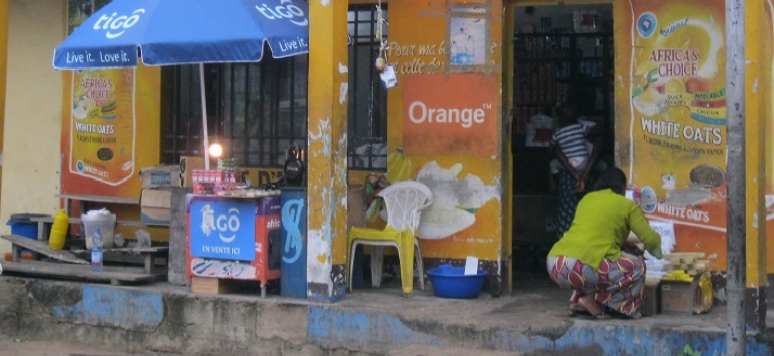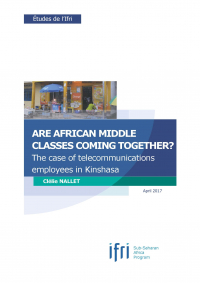
Are African Middle Classes Coming Together? The Case of Telecommunications Employees in Kinshasa Études de l’Ifri, April 2017
For many observers, a change in perception of the African continent occurred in the 2010s. Attention has focused on the relatively high rates of economic growth and a high population growth associated with urban expansion; both indicators interpreted as promises of economic “emergence” leading to potential new markets.

The “African middle classes” have become key to these opportunities, particularly as they embody the hope of growth driven by the domestic market and that of a certain “social harmony”. The subject appears in the reports of international development institutions and in 2011 the African Development Bank (AfDB) dedicated a study to it which promptly announced the emergence and expansion of the middle classes in Africa. This idea was widely taken up by the media and private consulting firms.
It is necessary to examine specific case studies in order to understand the dynamics of this vast group in the “middle class” category. In order to identify the more noticeable, and hence more “predictable”, socio-economic dynamics, this study proposes to tighten the entry point of analysis, by focusing on a specific professional status, formal wage labour. This does not necessarily mean that all employees in the formal sector belong to the “middle class”, or that the latter consists solely of employees from the formal sector. Studies conducted in the field in Africa have shown that access to middle-class type social positions is helped by the presence of a stable income whether from formal or informal activity. It is rather more by the combination of formal and informal business activities, divided between different household members, or accumulated by the same person. Therefore, the idea is not to give an overview of the intermediate social situations, but to ask about the relationships between a formalized wage labour segment and access to a social group, and its impact on the debate about the African “middle classes”.
It was decided to focus on telecommunications employees. This sector is renowned for its strong socio-economic impact: it contributes significantly to growth in GDP and creates spillover effects on job creation, particularly by establishing extensive networks of agents, suppliers, and sub-contractors. This study assumes that this sector is involved in creating a pool of salaried professionals, which would be indicative of the formation dynamics of a certain type of intermediate social group.


